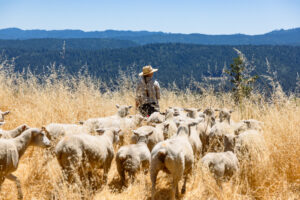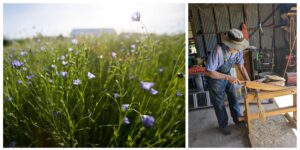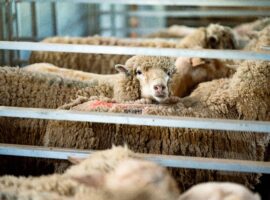2021 Wool & Fine Fiber Symposium
Weaving Voices: People, Land & Water
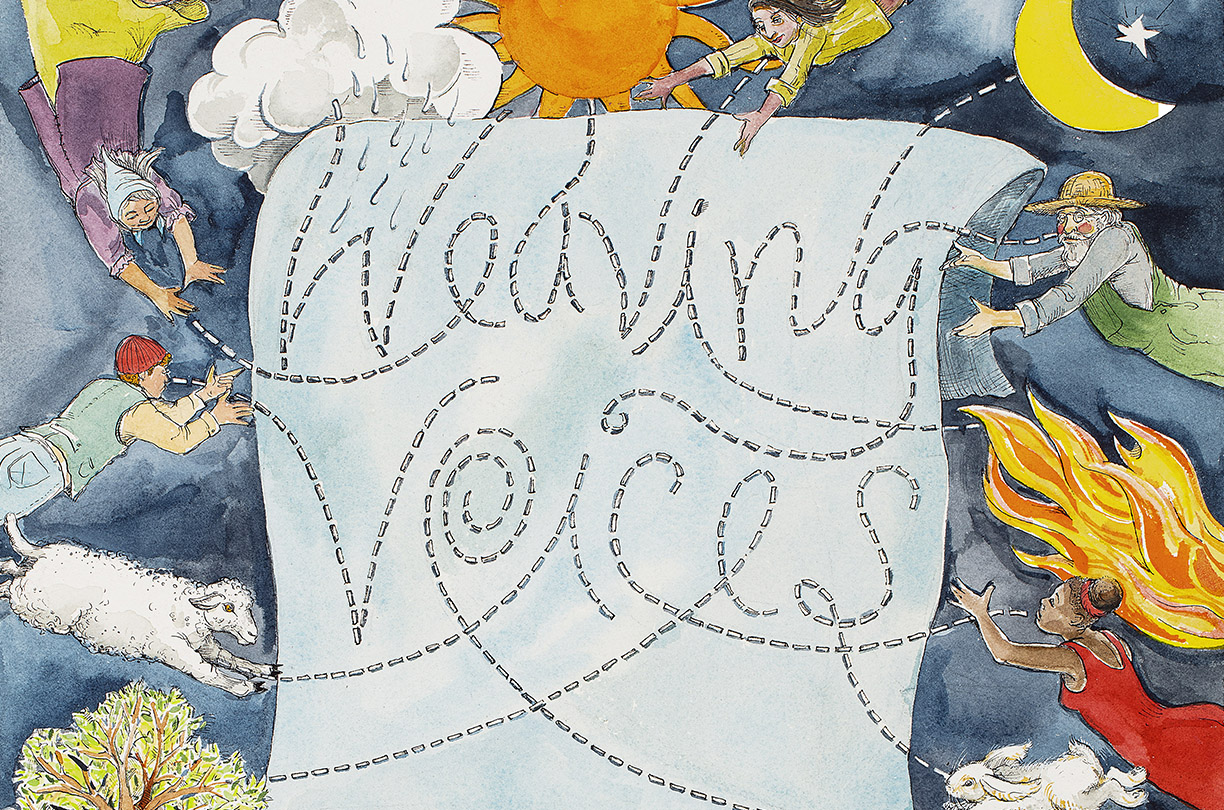
2021 Symposium Recording
Spotlight Speakers & Panels
9:00-9:15 am: Opening Remarks by Rebecca Burgess
9:15-10:25 am: Conversation between Abena Cynthia Agyeibia of Kantamanto Market and Santa Puac of the Garment Worker Center
10:15-11:10 am: Presentation by Anja Lynbaeck of Local Futures
11:10-11:20 am: Short Break
11:20-11:45 am: Presentation by Karen Hampton & Conversation between Karen Hampton and Teju Adisa-Farrar
11:45-1:15 pm: Agroforestry Panel with Sonja Brodt, Liz Carlisle, Guido Frosini, Jesse Smith; facilitated by Mike Conover
1:15-1:35 pm: Fibershed Marketplace Showcase
1:35-1:50 pm: Short Break
1:50-2:30 pm: Lightning Talks with Marcia Barinaga, John Bailey, Kelli Dunaj, Sarah Keiser
2:30-4:00 pm: Water Systems Panel with Andrew Fisher, Regina Hirsch, Dennis Hutson, Brad Lancaster
Speakers
(in alphabetical order)
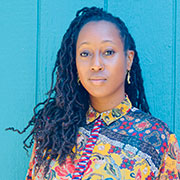 |
Teju Adisa-Farrar is a Jamaican-American environmental equity consultant and researcher. She centers climate, racial, and distributive justice by sharing ideas on regenerative practices and co-collaborative design. Teju uses a social geographies perspective encouraging us to think about space, place and identity. Teju’s lens includes sustainable fiber and fashion systems, urban ecologies, nature, Black history, activism and art. She supports people, collectives and organizations who are mapping / making alternative futures. |
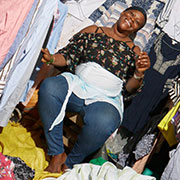 |
Abena Cynthia Agyeibia is a retailer in Kantamanto. She has been retailing cotton blouses from the UK for over 8years. Abena comes from Aburi in the Eastern region but lives in Teshie, a suburb of Accra. On Sundays, the only day she gets to spend time with her family, Abena likes to make fufu and palm not soup; her favorite. |
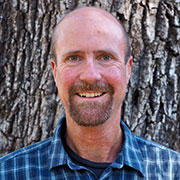 |
John Bailey’s love of agriculture and the natural world started very early in life with most summers spent on his grandparent’s and uncle’s farms in upstate New York where a mixture of cattle pastures, woodlands, and creeks introduced him to the complexity and beauty of the natural world and agricultural systems. After finishing high school in northern California, he did his undergraduate work in biology and agroecology at UC Santa Cruz including a year in New Zealand at the University of Otago. Post-college, he worked as a research assistant in cotton and strawberry fields before studying and then assistant teaching ecological horticulture at the UC Santa Cruz Center for Agroecology and Sustainable Food Systems. He then spent a few years both farming on his own and working at McEvoy Ranch outside of Petaluma before returning to school to earn his Masters of Business Administration in Sustainable Enterprise. Next he became engaged in developing a botanical soap and body care operation, starting a wine storage business, and helping develop a food hub serving Mendocino and Lake Counties. He is currently the Director of the UC Hopland Research and Extension Center where his diverse skill sets are put to good use. |
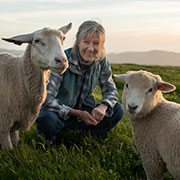 |
Barinaga Ranch, located in coastal Marin County, is home to Marcia Barinaga’s small flock of white and colored Corriedale, Romney and Cormo sheep, as well as some retired East Friesian dairy ewes from when Marcia ran a sheep dairy and made cheese. Marcia comes from a family of shepherds, and feels a deep connection with her sheep. Her sheep graze year-round on nearly 100 acres of certified-organic pastures. Marcia uses climate-beneficial management practices and rotational grazing to maintain the health of her coastal grasslands, which are protected as farmland forever by a conservation easement with the Marin Agricultural Land Trust. She sells white and naturally colored Romney, Corriedale and crossbred fleeces to hand-spinners and also sells roving and naturally colored yarns produced at Valley Oak and Mendocino wool mills. |
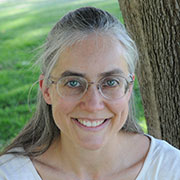 |
Sonja Brodt is Associate Director of UC SAREP and coordinates the Agriculture and Environment theme. Recent research and education initiatives have been focusing on increasing adoption of renewable farming practices that regenerate the soil, conserve natural resources, harness biodiversity for better agricultural and environmental outcomes, and help producers mitigate and adapt to climate change. Recent projects focus on comprehensive training for beginning organic farmers, creating new models for native species hedgerows that include commercial harvest of native species such as blue elderberry, and creating a database of successful practices for cover crops management. Sonja aims to integrate social science and agroecological perspectives into her work and has also taken a leading role in spearheading professional development programs geared toward increasing the capacity of extension professionals to engage with more racially and culturally diverse and traditionally under-served stakeholders. Sonja completed a B.A. in Biology, an M.S. in International Agricultural Development, a Ph.D. in Geography, and a Permaculture Design certificate. |
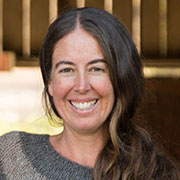 |
Rebecca Burgess is the Executive Director of Fibershed. She has two decades of experience working at the intersection of ecology, fiber systems, and regional economic development. She is the author of the best-selling book Harvesting Color, a bioregional look into the natural dye traditions of North America, and Fibershed: Growing a Movement of Farmers, Fashion Activists, and Makers for a New Textile Economy released in 2019. She has taught at Westminster College, Harvard University, and California College of the Arts. She also holds a new board position at the Livestock Conservancy and is serving on the leadership council of the Center for Regenerative Agriculture and Resilient Systems at Chico State University. |
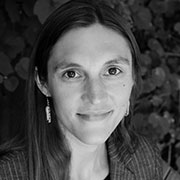 |
Liz Carlisle is an Assistant Professor in the Environmental Studies Program at UC Santa Barbara, where she teaches courses on food and farming. Born and raised in Montana, she got hooked on agriculture while working as an aide to organic farmer and U.S. Senator Jon Tester, which led to a decade of research and writing collaborations with farmers in her home state. She has written three books about regenerative farming and agroecology: Lentil Underground (2015), Grain by Grain (2019, with co-author Bob Quinn), and most recently, Healing Grounds: Climate, Justice, and the Deep Roots of Regenerative Farming (2022). She is also a frequent contributor to both academic journals and popular media outlets, focusing on food and farm policy, incentivizing soil health practices, and supporting new entry farmers. She holds a Ph.D. in Geography, from UC Berkeley, and a B.A. in Folklore and Mythology, from Harvard University. Prior to her career as a writer and academic, she spent several years touring rural America as a country singer. |
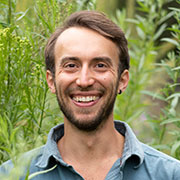 |
Mike Conover is Fibershed’s Climate Beneficial™ Technician. He collaborates with land stewards within our Climate Beneficial Agriculture program, supporting them with carbon farm plan implementation and CB verification. Mike is thrilled to contribute to this community of producers and makers. He holds an M.S. in Ecological Design from the Conway School and has spent the past decade studying and practicing regenerative agriculture and sustainable land-planning. He sees regenerative agriculture as an essential strategy to address global climate change, rebuild healthy soils, and create a more resilient regional economy around food and fiber. |
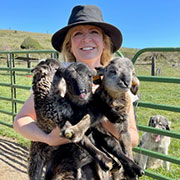 |
Kelli Dunaj is a Fibershed producer and Navajo-Churro sheep farmer located in Marshall, California about 2 hours north of San Francisco. She produces wool for yarn and roving, breeding stock, butcher lambs, and sheepskins. She started her ranch in 2013 and initially chose to work with Navajo-Churro sheep due to their adaptability, hardiness, and the fact that they were a good ecological fit for the coastal prairie. Over the years she came to view the sheep as a significant cultural and historical symbol with a higher purpose beyond commercial agriculture. She now devotes a lot of her time to coordinating operations for a Navajo-led Navajo-Churro wool co-operative supporting shepherds on the reservation with better prices for their raw wool and an online marketplace for goods milled from their fleeces. Prior to farming, Kelli held roles as a full-time mom and Director of Distribution for Williams-Sonoma Corp. You can find her on Instagram @springcoyoteranch and @rainbowfibercoop. |
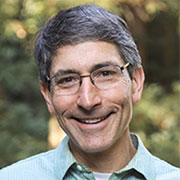 |
Dr. Andrew Fisher is the campus lead for the UC Water Security and Sustainability Research Initiative. His research focuses upon surface and groundwater interactions as well as groundwater recharge, hydrology and thermal evolution of oceanic crust, seamounts, ridge flanks and convergent margins. He has a vast understanding of the scope and breadth of California policy specific to groundwater recharge. |
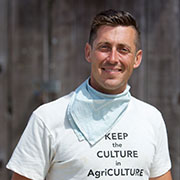 |
Guido Frosini, of True Grass Farms, is a cow whisperer, land tender, and sylvan protector. He’s known for his love of oaks, but is also crazy about lasagna, red wine, and great hospitality. |
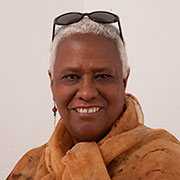 |
Karen Hampton is an internationally recognized conceptual artist, addressing issues of colorism and kinship within the African American community. She is recognized as both a literal and figurative storyteller who weaves together both the textures and colors of the ancient world with that of an imagined future. Material and imagery are part of the methodology she uses to accesses her ancestral and personal heritage. Using her training in the fiber arts with her training in anthropology, she synthesizes the role of weaver with that of a griot, the storyteller. Hampton’s art practice easily flows between different fiber surfaces and materials to complete each story. Hampton’s art practice has led her into the role of being a leader in the field of textiles and fiber as a voice for the underrepresented BIPOC in the field and into the position of Vice-President, President Elect of the Textile Society of America. Hampton’s artwork is held in the collections of the Ruth and Elmer Wellin Museum of Art, Hamilton College, Clinton, New York, and the Honolulu Museum of Art, Honolulu, Hawaii. In 2008, Hampton received the coveted Eureka Prize from the Fleishhacker Foundation. Hampton is an Assistant Professor at Massachusetts College of Art and Design, Boston, Massachusetts and is the Vice-President of the Textile Society of America. |
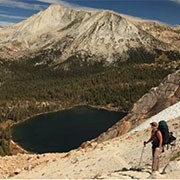 |
Regina Hirsch founded Watershed Progressive, the consulting/contracting firm which focuses on onsite water best management practices aimed at rehydrating watersheds. Since 2009, Watershed Progressive has helped design and install projects that restore habitat and increase watershed hydrologic recharge through water conservation and re-use. In addition, Regina is an executive board member of various organizations, such as The Telele Foundation and the California Water Reuse Policy Council. |
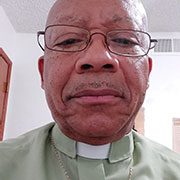 |
Reverend Dr. Dennis Hutson is a retired United Methodist minister from the Desert Southwest Annual Conference of the United Methodist Church (the Phoenix area). Reverend Hutson served in various capacities throughout his ministry. His last ministerial appointment was as Senior Pastor of Advent United Methodist Church in Las Vegas, NV. He was commissioned a chaplain in 1985 and served as a Chaplain, Senior Protestant Chaplain, Installation Chaplain, Wing Chaplain and Deputy Director of the Chaplain Assignments Division of the Air Force Personnel Center, in the United States Air Force. He returned to the Desert Southwest Annual Conference after serving 21 years on active duty. Prior to the military service Reverend Hutson served in the Northern Illinois and Pacific Southwest Annual Conferences of the United Methodist Church. He was sent to Phoenix to help establish the new Desert Southwest Annual Conference, where he served as the first Lay Leadership (Nominating) Committee Chairperson for the Conference staff. |
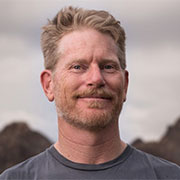 |
Brad Lancaster runs a successful permaculture consulting, design, and education business in Tucson, Arizona. He is focused on integrated and sustainable approaches to landscape design, planning, and living. Growing up in a dryland environment, water harvesting has long been one of his specialties and a true passion. He is the author of the permaculture bible for water harvesting: Rainwater Harvesting for Drylands and Beyond Volumes I & II and he has just released new full color revised and expanded editions of both. |
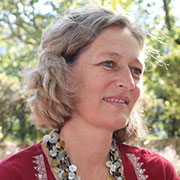 |
Anja Lyngbaek (Denmark) Associate Director of the international NGO, Local Futures, coordinator of the International Economics of Happiness Conference Series and World Localization Day. Anja has worked for three decades to further local food systems and place-based economic models in service of people and planet. She gives talks, runs workshops and teaches on localization, and is active in international collaborations for a new economy. Anja divides her time between a Mexican ecovillage and a small island in the Danish Archipelago. Anja has a background in Rural Resource Management and Agroforestry. She is a passionate food grower and is happiest with her hands in the soil. |
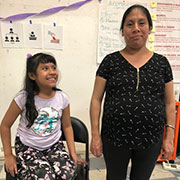 |
Santa Puac is a garment worker, a mother of three and a labor activist. Originally from Guatemala, organizing for justice is a family affair for Santa. She has been leading changes in the garment industry with her children for the past five years and is now the Organizer at Garment Worker Center. |
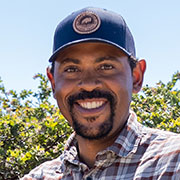 |
Jesse Smith is the Director of Land Stewardship for White Buffalo Land Trust and has been working for the past decade to develop a resilient food economy in California’s Central Coastal region. He’s an agricultural producer with a background in communication and industrial design, and has devoted his life to agricultural system design and community development to achieve evolutionary change within our food economy and ecology. In addition to his role as Director of Land Stewardship at WBLT, he is a Board Trustee at the Santa Barbara Botanic Gardens, a member of the Santa Barbara Food Action Network Executive Committee in 2020, and part of the Green America, Carbon Farming Innovation Network since 2017. After almost a decade of working in regenerative agriculture, ecological education, community leadership, and international consulting, Jesse is at the inflection point in his career. Having firmly found a grounded footing in his work and community, he now has an opportunity to catalyze systemic change with the 1,000 acre Center for Regenerative Agriculture at Jalama Canyon Ranch as a powerful platform. As an individual with a multicultural and multidisciplinary background, he is a leader with a diverse perspective that can connect the threads within social, ecological, and capital systems. His vision to see the nested nature in which his local and regional work affects the larger national and global context is unique. His role is shifting the industry of agriculture from a paradigm of do-less-harm to one of living system regeneration, and the community that is growing around him is a manifestation of what the world needs most these days. |

